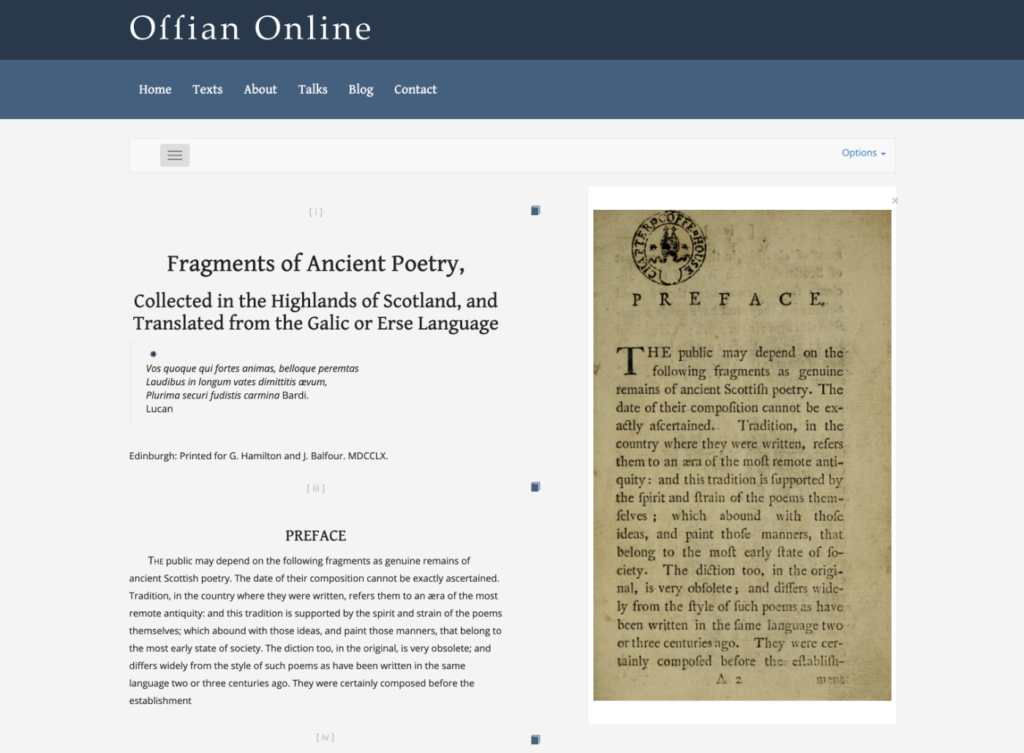Research
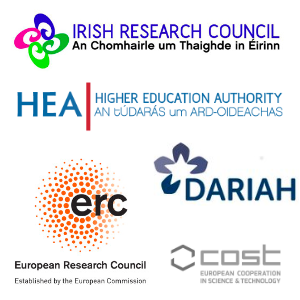
The Moore Institute Digital Lab provides researchers in the Arts, Humanities and Social Studies with access to digital technologies, skills and people to help develop the digital dimension of their work.
If you are considering the development of such a research project and would like advice or support, please contact David Kelly (david.d.kelly@nuigalway.ie), Digital Humanities Manager at the Moore Institute.
To date, we have successfully collaborated on the delivery of research projects funded by national and international agencies.
Supporting Research Excellence
The Digital Lab supports research excellence through the application of innovative technologies across University of Galway’s mission of “Enriching Creativity and Culture” within the themes of:
- Digital Humanities
- Historical and Literary Research
- Creative Arts
- Language, Culture and Identity
- An Ghaeilge
- Geography, Place and Politics
Applied Technology
Technology areas that the Digital Lab has provided research projects with support include:
Developing Research Infrastructure
We develop tools to enable researchers to manage their research process, structure their research data, and to make research data available to wider research communities upon project completion.
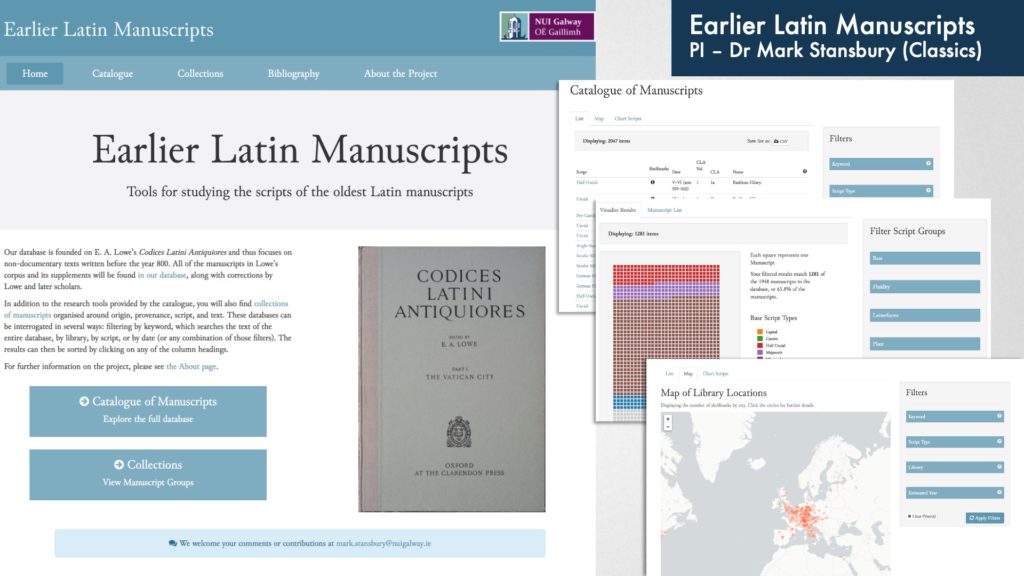
Data Processing & Data Visualisation
We collaborate with researchers to use software that can aid the collection, processing and analysis of their data. We use applications such as the open source OpenRefine or Gephi, or where required, custom developed software tailored to the project’s needs.
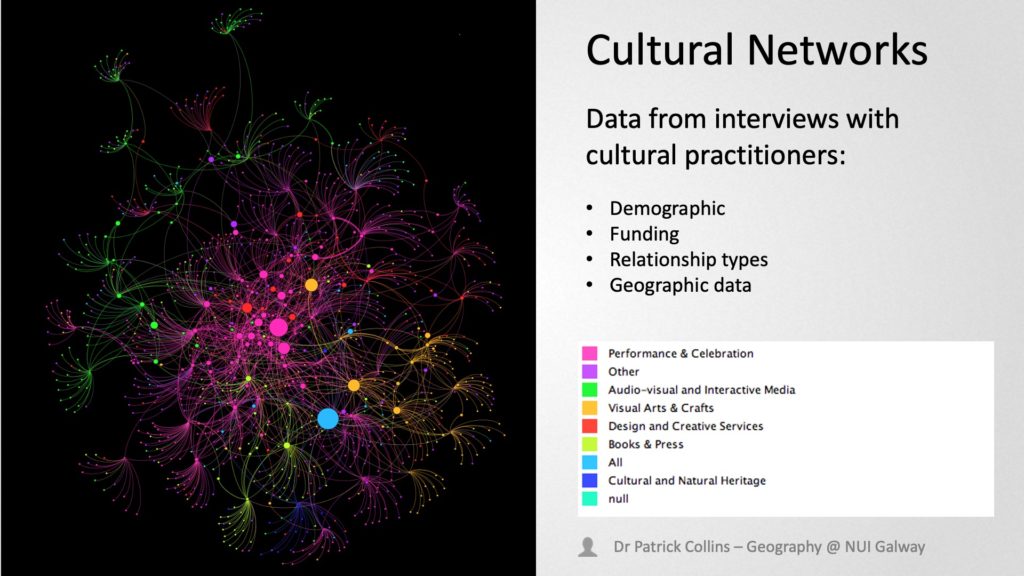
We have a track record in creating innovative, engaging and interactive data visualisations using data drawn from arts and humanities research.
Depending on the requirements, the data visualisations can be custom developed using open source software such as D3.js, or by using software applications such as Tableau and QGIS.
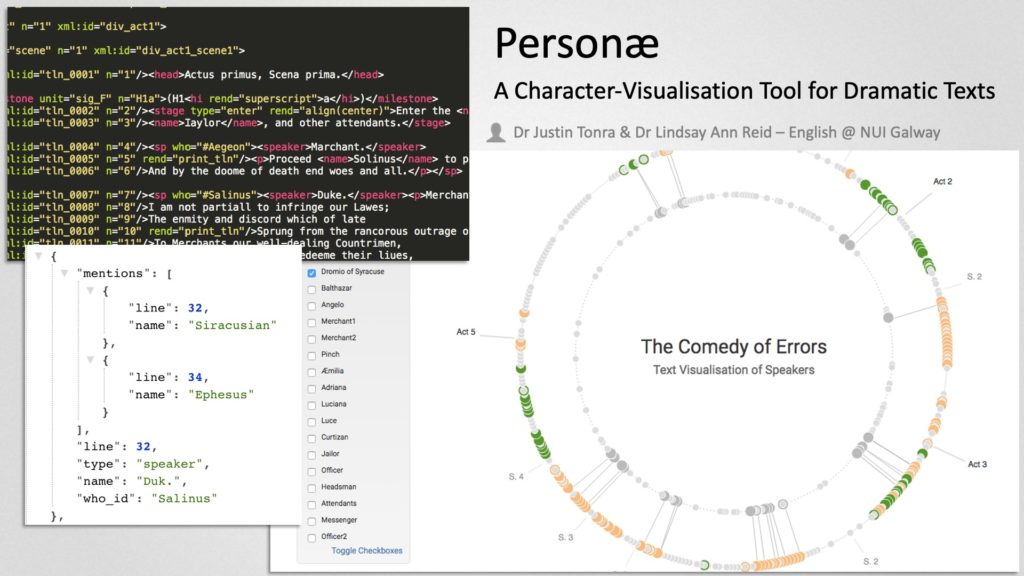
Creative Technology
We have experience of creatively applying emerging technologies within a research context. Examples of such creative applications could be to provide new forms of user engagement, to explore the creation of innovative research outputs, or to explore new ways to disseminate research findings.
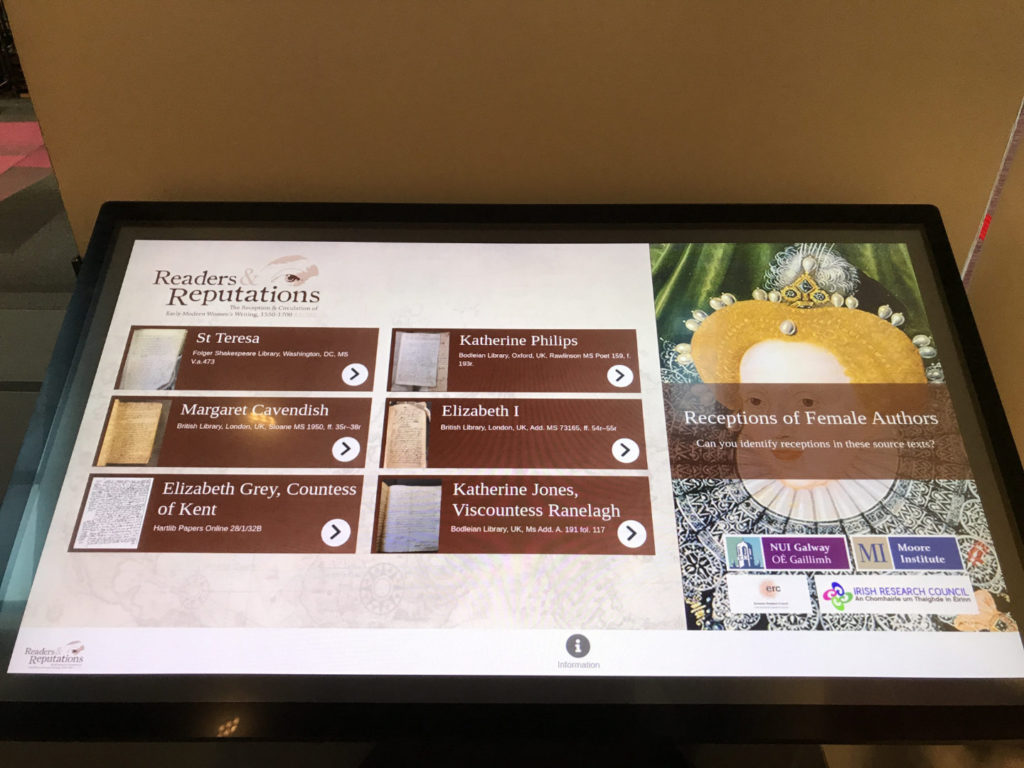
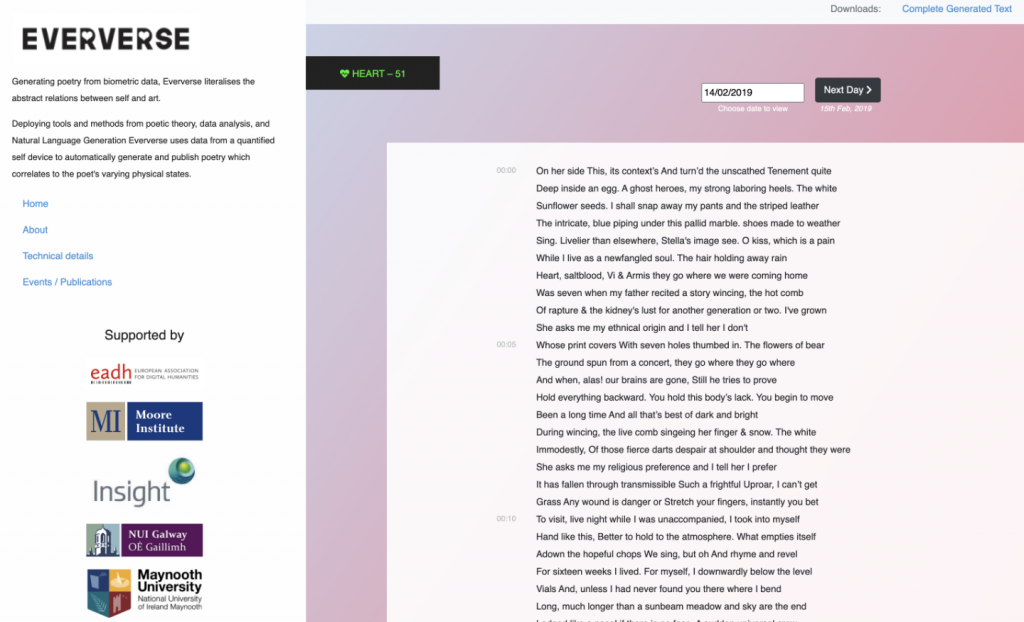
Immersive Technologies – VR & AR
We are exploring the application of Virtual and Augmented Reality technologies, and ways of applying them effectively within a research context. This may be to provide additional, relevant data to a user, to give researcher new perspectives on their research data, or to communicate with new audiences.
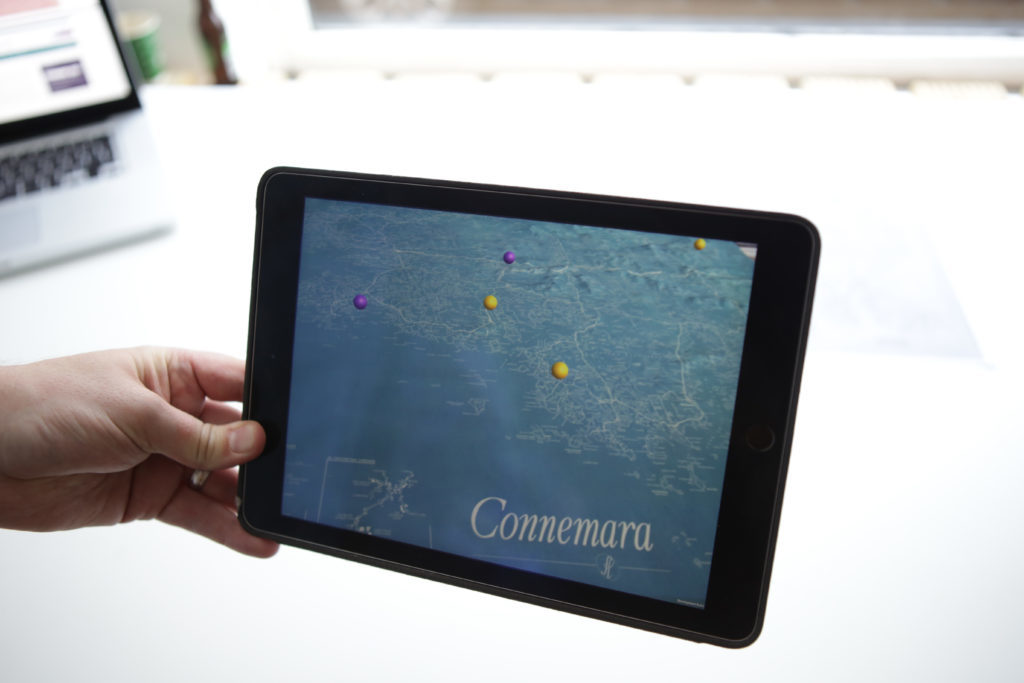
User Interface and Visual Design
We collaborate on projects which require user interface design and visual design work. This can include working with the project team to establish the requirements, and managing user testing at each stage of the design process.
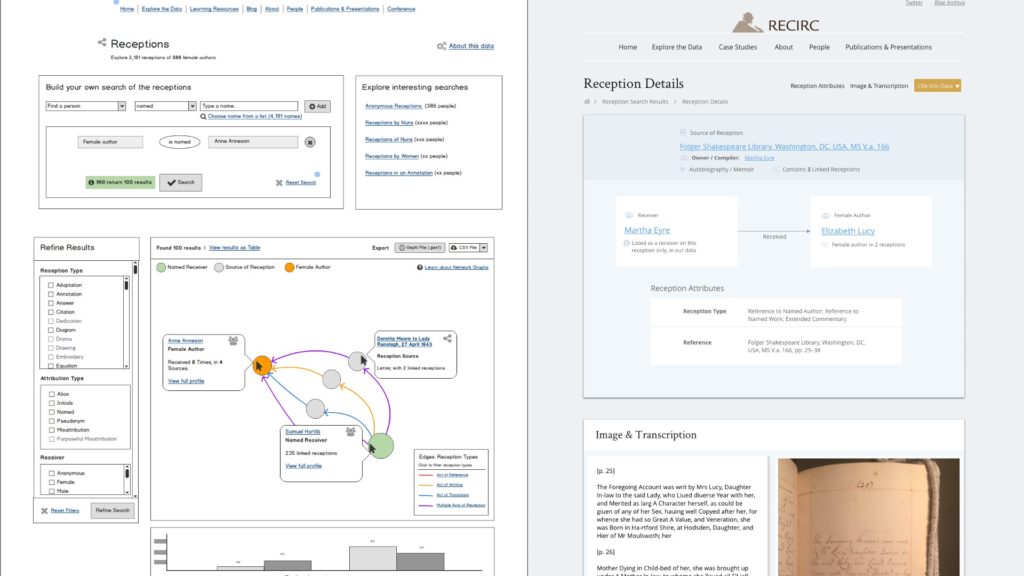
Digital Edition Development
We have collaborated on the development of digital editions based on the use of open standards such as TEI.
